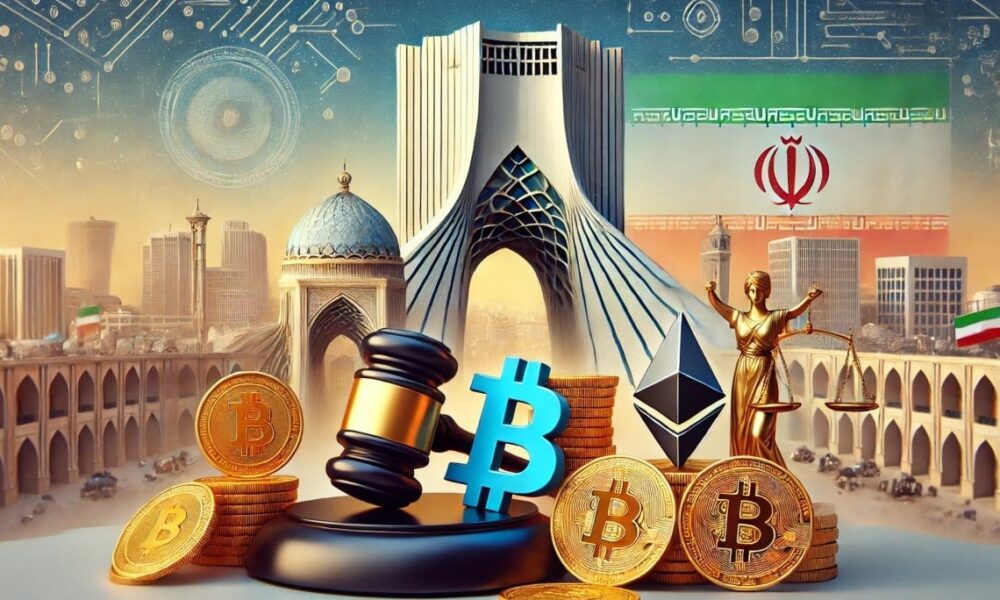Regulation
Iran and the use of cryptocurrencies to evade US sanctions

The recent death of the current former Iranian president Ebrahim Raisi, nicknamed “the butcher of Tehran” due to the numerous executions of opponents ordered in the 1980s, raises many concerns about the future evolution of the cryptocurrency landscape in the country.
In fact, until today, Iran was known for mining cryptocurrencies in an attempt to evade US regulations and sanctions, and to support the growth of the Bitcoin mining industry.
In the Middle East, cryptocurrencies have become particularly valuable even in relation to the daily lives of citizens, unable to maintain their exchange value after the sharp inflation of the Iranian rial.
Let’s see how the disappearance of Raisi could have compromised the current scenario and how Iran will face political instability.
Death of President Raisi creates uncertainties for the development of the crypto sector in Iran
The unexpected death of Iranian President Ebrahim Raisi, who died in a helicopter crash in a mountainous area of the Tabriz region, on the border with Azerbaijan, greatly complicates the political and economic landscape of the country, particularly with regard to approach to the cryptocurrency sector. and the evolution of local regulations.
With an economy already difficult to manage due to increasingly intense US sanctions, the loss of President Raïssi could increase the country’s instability by triggering internal conflicts and social pressures.
In the short term, chaos could directly lead to disruption of oil supplies, with the country still the world’s third-largest OPEC exporter, just as happened in the past during the Iranian revolution of 1979, according to Forbes.
As for Iran’s economic strategy, it is clear that the incident raises questions about the future direction to follow, particularly on a technological level.
Just a week ago, the Digital Asset Valorization Pilot Program and CBDC has been approved by the Central Bank of Iran, with the launch scheduled for June 21, marking the start of the Iranian calendar month of Shooting, but all projects may now be suspended.
Furthermore, being one of the most influential figures in Iranian politics, Raisi’s death not only disrupts the nation’s internal dynamics, but also affects its external relations and economic strategies, with international regulations likely to become more strict for the country.
What is certain is that its decadence, ends an era of repression of dissentwhich saw thousands of political opponents and prisoners of war brutally sentenced to death and subjected to physical and psychological torture.
As reported in the Washington documents, in 2019, the US Treasury sanctioned Raïssi for:
“its administrative control over executions of persons who were minors at the time of the crime and over torture and other cruel, inhuman or degrading treatment or punishment inflicted on prisoners in Iran, including amputations.”
The throne of Supreme Leader goes to Alī Ḥoseynī Khāmeneī, a well-known religious politician who served as president from 1981 to 1989.
Iran Bypassed US Regulations With Cryptocurrencies: Focus on Mining
Iran is known to have repeatedly circumvented the long-standing U.S. sanctions and regulationswhich oppressed the trade and commerce of the Persian Gulf country, through the use of cryptocurrencies.
Western sanctions have for years tested Iran’s autonomy, hurting oil exports, financial trade and key industries.
To mitigate the negative effects, the country started trading abroad with P2P crypto exchangeswhich do not involve a central banking entity and are therefore exempt from possible international censorship.
As reported by blockchain analytics company On-Chain AnalysisIran has been the protagonist of a strong campaign of financing terrorism and drug trafficking precisely thanks to cryptocurrencies, which have enabled free trade throughout the world.
The Iranian government, noting the positive economic effects for the country, has supported (albeit with ups and downs) the country’s crypto industry, approving cryptocurrency mining as a legitimate business activity in 2019 and issuing cryptocurrencies. currencies. more than 1,000 licenses to bring capital to this heavily sanctioned country.
Having become a hub for Bitcoin mining thanks to the very low cost of energy, the Middle Eastern nation has followed in the footsteps of Russiaalso compromised by oppressive US regulations.
Regardless, we highlight how in recent years Iranian Bitcoin mining has been reduced, both due to energy turmoil following advanced illegal mining, and due to the growth of other markets international.
According to the Cambridge Center for Alternative Finance (CCAF), currently the Bitcoin mining in Iran represents 0.2% of the supply chain, down 7% since 2021.
We will see how the mining sector will evolve after Raïssi’s death, and whether this type of market will be supported to alleviate the unstable internal economic conditions.
Bitcoin as a safe haven in Iran after rising inflation
In such a complex context, which sees political instability due to Raisi’s death competing with the weakening of the economy due to strict Western regulations, the Iranian national currency can only take the hit.
All these events led to a significant devaluation of the Iranian riyalwhich has faced strong waves of inflation, pushing citizens to resort to cryptocurrencies to mitigate the damage.
In particular, Bitcoin, as has happened in the past in other countries like Nigeria, Argentina, El Salvador and others, helps the population maintain its economic value by acting as a real a safe haven like gold.
Unlike physical gold, however, it is more complex to capture because it operates in a cryptographic digital environment, and it has also achieved higher returns in recent years.
As a decentralized digital currency, Bitcoin offers unique attributes that make it an attractive option during times of geopolitical tensionespecially when inflation in a country like Iran exceeds double-digit percentages, risking ruining the sacrifices of millions of people.
Once again, Bitcoin “solves the problem”!
